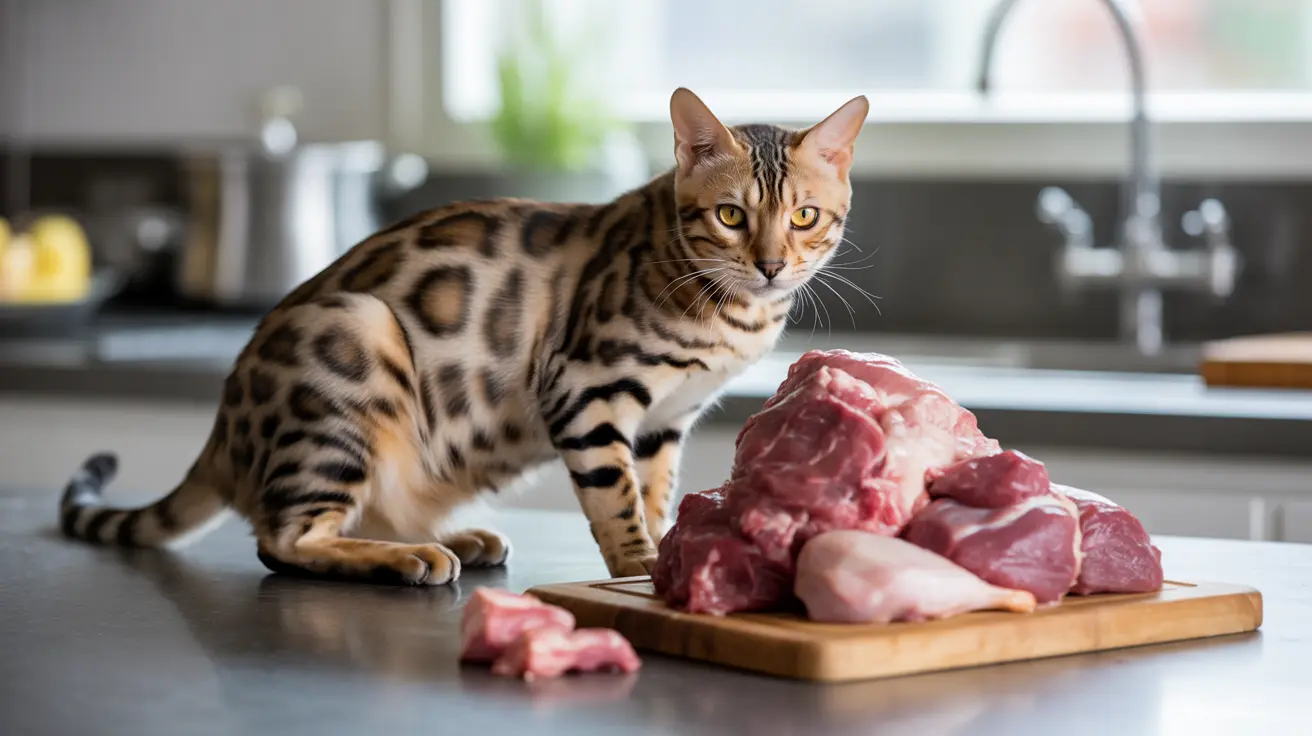The Science Behind Cats' Carnivorous Nature
Cats have evolved as specialized hunters with specific anatomical and physiological adaptations that make them perfectly suited for a meat-based diet. Unlike omnivores such as dogs or humans, cats possess several unique characteristics that define their carnivorous nature:
- Sharp, pointed teeth designed for tearing meat
- Short digestive tract optimized for processing animal protein
- Highly acidic stomach environment for breaking down raw meat
- Lack of flat molars for grinding plant matter
Essential Nutrients That Only Come From Meat
As obligate carnivores, cats require specific nutrients that are only found naturally in animal tissues. These essential components include:
Taurine
This amino acid is crucial for heart function, vision, and reproduction. Cats cannot synthesize taurine in sufficient quantities and must obtain it from animal proteins.
Arachidonic Acid
An essential fatty acid found only in animal fats, necessary for maintaining healthy skin, coat, and inflammatory responses.
Vitamin A
Cats cannot convert beta-carotene from plants into active vitamin A, requiring pre-formed vitamin A from animal sources.
The Limitations of Plant-Based Nutrition for Cats
Unlike omnivores, cats lack several enzymatic pathways necessary to properly utilize plant-based nutrients:
- No salivary amylase for carbohydrate digestion
- Limited ability to process plant proteins
- Inefficient conversion of plant-based omega-3 fatty acids
- Unable to synthesize certain amino acids from plant sources
Health Implications of Incorrect Dietary Choices
Feeding cats an inappropriate diet can lead to serious health complications, including:
- Heart disease from taurine deficiency
- Vision problems
- Compromised immune system
- Poor reproductive health
- Skin and coat problems
- Digestive issues
Frequently Asked Questions
Are cats omnivores or obligate carnivores, and what does that mean for their diet?
Cats are obligate carnivores, meaning they must eat meat to survive. This classification requires that at least 70% of their diet comes from animal sources to maintain optimal health.
Why can't cats thrive on plant-based or vegan diets like some omnivores can?
Cats lack the digestive enzymes and metabolic pathways needed to properly process and utilize nutrients from plant sources. They require specific nutrients found only in animal tissues.
What essential nutrients do cats need that they can only get from animal meat?
Cats need taurine, arachidonic acid, preformed vitamin A, and vitamin B12, which are naturally found only in animal tissues. These nutrients are essential for their survival and cannot be adequately obtained from plant sources.
How do a cat's teeth and digestive system differ from omnivores like dogs and humans?
Cats have sharp, pointed teeth for tearing meat, a shorter digestive tract, and highly acidic stomachs optimized for meat digestion. They lack flat molars for grinding plant matter and don't produce salivary amylase for carbohydrate digestion.
What health problems can arise if a cat is fed a diet lacking animal-based proteins and nutrients?
Cats fed diets lacking adequate animal protein can develop serious health issues including heart disease, vision problems, immune system dysfunction, reproductive issues, and severe nutritional deficiencies.
Conclusion
Understanding that cats are not omnivores but obligate carnivores is crucial for providing them with proper nutrition. Their unique biological needs require a diet rich in animal-based proteins and nutrients, and this fact should guide all decisions about their feeding and dietary care.






